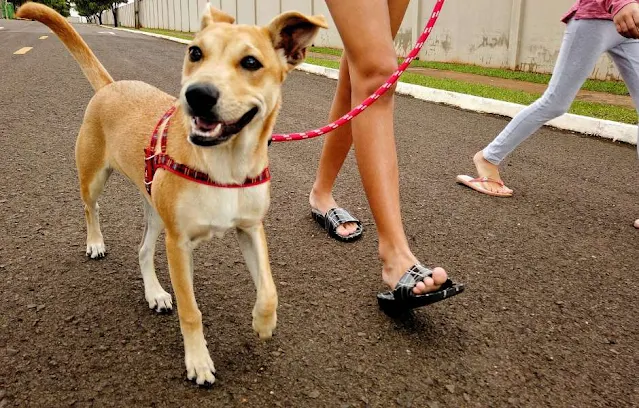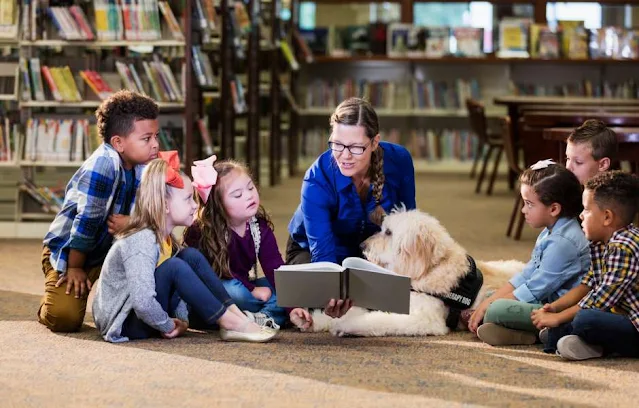Dogs are best friends. The bond between children and dogs is remarkable and enduring. Dogs have long held the title of “man’s best friend,” but they are equally beloved companions to children. This unique connection goes beyond the surface and is rooted in mutual trust, love, and countless benefits for kids and canines. This article will delve into the special bond shared between children and dogs, its profound impact on child development, and how to foster a healthy and harmonious relationship.
The Role Of Dogs In Child Development
Children are drawn to dogs from a young age. There’s something inherently magical about the companionship of a furry friend. The relationship between kids and dogs can profoundly influence a child’s physical, emotional, and social development.
● Emotional Well-being:
Dogs are excellent emotional support systems. They provide unconditional love and companionship, helping children develop a sense of security and self-worth. Petting a dog can release oxytocin, the “love hormone,” which reduces stress and anxiety in children.
● Responsibility:
Caring for a dog teaches children responsibility. Feeding, grooming, and walking their canine friends instils a sense of commitment and accountability, valuable life skills that will serve them well in adulthood.
● Empathy And Compassion:
Interacting with dogs fosters empathy and compassion in children. They learn to recognize and respond to the needs and feelings of their furry companions, which can translate into better interpersonal relationships with humans.
● Socialization:
Dogs are natural icebreakers. Having a dog can help children overcome shyness and social anxiety. Dog owners often find themselves striking up conversations with other dog enthusiasts during walks or trips to the park, which can help kids develop social skills.
● Physical Activity:
Dogs are active creatures that require exercise and playtime. This encourages children to be more physically active, reducing the risk of childhood obesity and promoting a healthier lifestyle.
● Stress Reduction:
Dogs have a calming effect on children. They provide comfort during challenging times and can be an emotional anchor when kids face stress, such as exams or peer conflicts.
Building A Strong Bond
Fostering a healthy and respectful relationship from the outset is essential to ensure a solid and lasting bond between kids and dogs. Here are some tips to consider:
● Supervision:
Always supervise interactions between young children and dogs, especially if the dog is unfamiliar or the child is too young to understand boundaries.
● Training:
Properly train your dog to obey basic commands like “sit” and “stay.” This not only ensures safety but also allows for more enjoyable interactions.
● Respect:
Teach children to respect the dog’s space and body language. Encourage gentle petting and discourage any rough play.
● Routine:
Establish a routine for both the dog and the child. Predictable schedules help dogs feel secure and provide structure for kids.
● Healthcare:
Monthly vet visits and proper grooming are essential for the dog’s well-being and the child’s safety.
● Education:
Educate children about dog behaviour, including signs of stress or discomfort. This knowledge empowers them to respond appropriately.
The Benefits Of Owning A Dog
Owning a dog is a profound experience that enriches children’s and adults‘ lives. Here are some of the many benefits of having a dog as a child’s best friend:
● Companionship:
Dogs are known for their unwavering companionship. They are there when you wake up in the morning, eagerly greet you when you return home, and curl up by your side when feeling down. This constant presence can significantly reduce feelings of loneliness and isolation, especially for children going through challenging times or facing social difficulties.
● Confidence:
Dogs’ loyal and non-judgmental nature can work wonders for a child’s self-confidence and self-esteem. When children know they have a furry friend who believes in them, it can boost their overall sense of worth and empower them to take on new challenges in life. A dog’s unconditional acceptance can help a child feel valued and loved, no matter their imperfections.
● Security:
Having a dog gives many children a sense of security beyond physical protection. Knowing that their loyal and vigilant furry friend is there to watch over them can help children feel safe and secure, whether it’s during nighttime or when encountering new and unfamiliar situations.
● Unconditional Love:
Dogs are masters of unconditional love. They don’t judge, hold grudges, or criticize. They offer their love and affection, which can be a powerful source of emotional support. Children can confide in their dogs, sharing their joys and sorrows without fear of judgment or rejection. This bond helps children develop emotional resilience and a strong sense of connection.
● Teaching Life Lessons:
Caring for a dog is a valuable life lesson in itself. Children learn about responsibility as they feed, groom, and exercise their canine companions. They also experience the circle of life as they witness the ageing process of their dogs. Coping with the loss of a beloved pet can give children a deeper understanding of life and death and the importance of cherishing moments with loved ones.
● Academic Improvement:
Numerous studies have demonstrated the positive impact of dogs on children’s academic performance. One such study found that students who read aloud to a dog experienced significant improvements in their reading skills. Reading to a non-judgmental and attentive dog can be less intimidating than reading to a person, reducing anxiety and increasing confidence. This approach enhances reading fluency and fosters a love for reading, a skill that serves children well throughout their lives.
Conclusion
The bond between children and dogs is a beautiful and powerful connection that enriches the lives of both. Dogs serve as best friends, confidants, and teachers, offering unwavering love and support throughout a child’s development.
This relationship contributes to emotional well-being, fosters responsibility and empathy, and encourages physical activity and socialization. Parents and caregivers must nurture this bond by teaching children how to interact safely and respectfully with their canine companions.
By doing so, we can ensure that the special relationship between kids and dogs continues to thrive, bringing joy and countless benefits to both sides of this extraordinary friendship. So, whether you already have a furry friend at home or are considering adding one to your family, rest assured that the bond between kids and dogs is a treasure worth nurturing.
Thank you for reading the article to the end. Your reading contribution was significant to us.
Affiliate Disclosure: The Frenchie Breed website may receive a small commission from the proceeds of any product(s) sold through affiliate and direct partner links at no cost to you.



Post a Comment